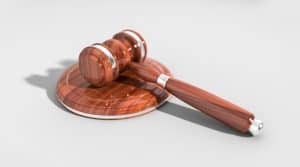Sometimes, when you’re trying to make sense of the law, you may feel lost. You’ve got questions and are looking for clear answers. In such situations, you need to know where to find accurate information. Let’s explore how you can assess the trustworthiness of the sources you use when seeking legal knowledge on the internet.
What is Legal Transparency?
It is about making regulations visible and easy to understand for everyone. It ensures that government policies and procedures are not shrouded in mystery, allowing the public to know what their rights and responsibilities are. Imagine trying to follow rules that are kept secret — how would you navigate daily decisions or protect your interests? By ensuring openness, individuals can make informed choices, understand their obligations, and seek justice if needed.
Where Can One Find Reliable Legal Information?
Finding accurate lar-related data online can be challenging, but there are several sources you can check:
- Government websites: These are typically the most accurate places to find information. Look for sites with .gov in their web address. For example, congress.gov offers access to U.S. federal legal documents.
- Educational institutions: Universities and colleges often provide extensive resources on their websites. Sites ending in .edu are valuable for foundational knowledge.
- Legal aid organizations: These groups help people understand legal matters without high costs. They often share free online materials.
- Reputable law firms: Some law firms offer blogs or free materials on various topics. These can be helpful for understanding how rules apply in everyday situations.
- Online legal services: Sites like lawrina.org offer general explanations and guides written by professional lawyers. Besides, you can always contact a legal professional and consult them if you have any questions.
How to Check Legal Information?
Finding sources is one thing, but how do you ensure they’re dependable? Here are a few ways to do it:
- Check the author’s credentials: Is the article written by a qualified lawyer or a reputable organization? A person without a corresponding background can make mistakes and provide misleading data.
- Look for references and citations: Dependable articles often refer to specific statutes or case laws that provide a basis for the given facts.
- Cross-check with multiple sources: If you find certain information doubtful, make sure other reliable sites agree. It will help you to prove its accuracy.
- Check the date of publication: Laws change. Make sure the details are up-to-date by ensuring the data is published in recent years and is still relevant.
- Privacy and terms: Trustworthy websites often have clear privacy policies and consent forms. This indicates they handle your data responsibly.
Conclusion
Legal transparency helps you understand your rights and duties. By knowing exactly where to find reliable information and how to evaluate it, you empower yourself to make informed decisions and protect yourself from many unpleasant situations. Remember, while the internet is full of resources, being careful and cross-checking legal data is never too much.







